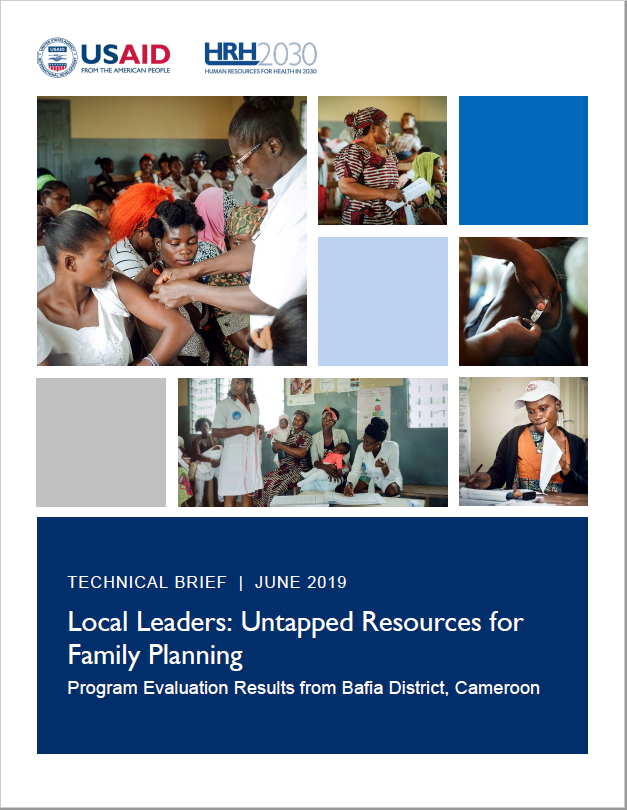15 Jul Local Leaders: Untapped Resources for Family Planning
 Although more people than ever before are using family planning services to satisfy their reproductive health intentions, the ambitious global goal of 120 million additional contraceptive users will not be met by 2020. New and different partnerships and strategies are needed to improve the acceptability and accessibility of family planning.
Although more people than ever before are using family planning services to satisfy their reproductive health intentions, the ambitious global goal of 120 million additional contraceptive users will not be met by 2020. New and different partnerships and strategies are needed to improve the acceptability and accessibility of family planning.
HRH2030 piloted a local leadership and management approach (LLMA) in the district of Bafia in Cameroon to test the hypothesis that engaging community leaders to support local health staff improves community awareness, acceptance, and interest in family planning information and services. This technical brief reports on the findings from the evaluation of the LLMA, assesses the contributions of local leaders and the overall approach, and provides lessons learned for future country replications.
The lessons learned included:
- The LLMA, carefully followed and implemented along its various steps, can succeed.
- Through their position, community leaders can raise family planning awareness, provide credibility, and create favorable conditions for acceptance and use of family planning services.
- Identifying the right leaders and providing them with appropriate materials and support are crucial.
- Increasing coordination with health workers is also critical.
- Increasing collaboration with other health activities should be considered.
- Maintaining local leaders’ skills in family planning knowledge and activities is necessary.
Associated Content:
HRH2030, Partners Mobilize Local Leaders to Alleviate Family Planning Challenges in Cameroon
Untapping the Potential of a ‘New’ Human Resource for Health: the Local Community Leader
Double Duty: Local Leaders Extend the Reach of Family Planning Services in Cameroon
Country: Cameroon
Resource Type: Technical Brief
Topic: Leadership and Management to Advance FP2030
DOWNLOAD





